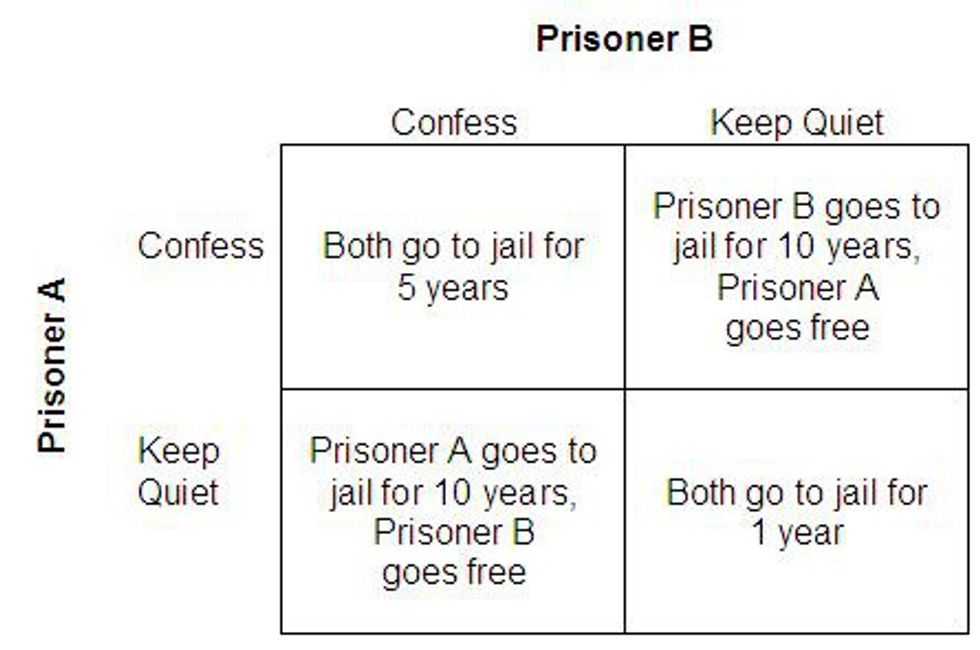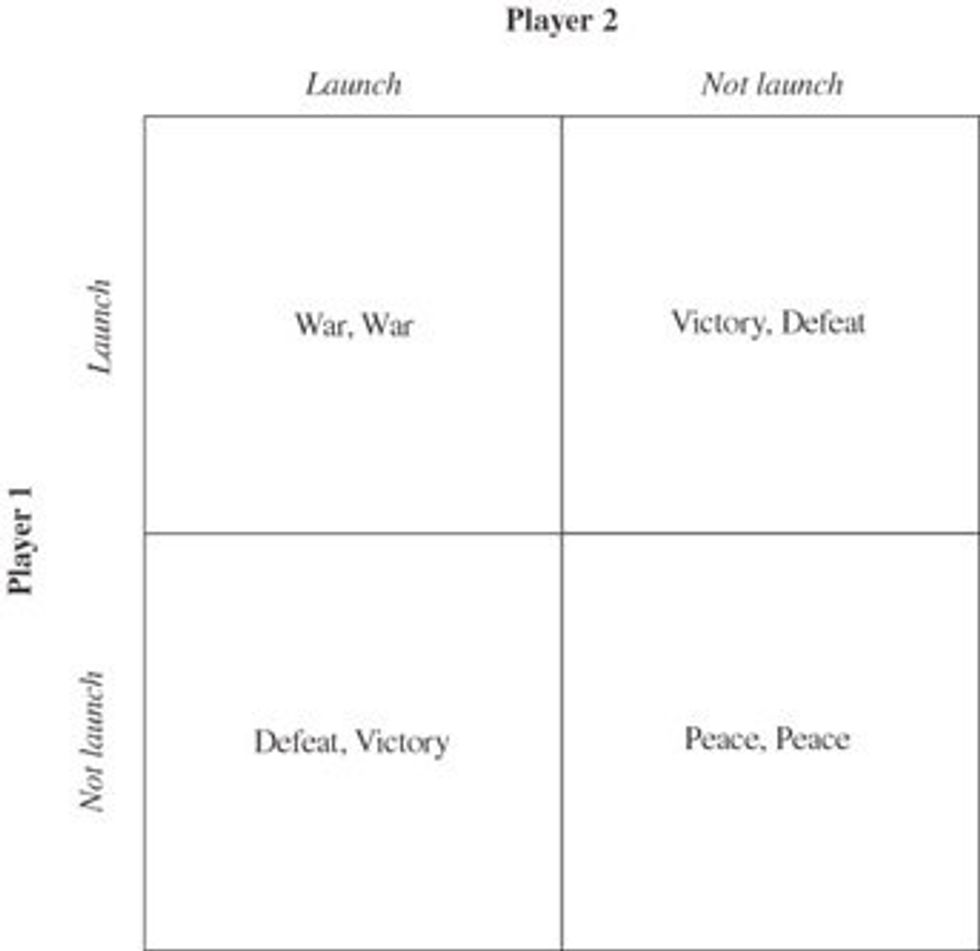During the Cold War, civilians in the US and the Soviet Union constantly feared a nuclear attack. This fear was very real at the time, both countries combined had enough fire power to destroy 95% of the worlds population within a matter of hours. Thankfully, today we live without the fear of nuclear war looking over us and only twice has its devastating effects been used on other human beings. Many international relations scholars point to the sobering effects of having two nuclear armed countries fight each other as being the reason why no nuclear war has occurred. They point to the concept of mutually assured destruction (MAC), when one country shoots nuclear weapons at another country they will undoubtedly face a counter-reaction of warheads being sent back at them... destroying both countries. So with the concept of MAC, why was there ever a fear of nuclear war? That's where game theory and the prisoner's dilemma come in.
A brief explanation for game theory is an approach to studying the decisions rational-entities make in varying scenarios. It is often used in global politics to determine the logic that goes behind domestic and international policy-making. One scenario in game theory, that's probably it's most famous example, is the prisoner's dilemma.
Two people are charged with robbing a bank and are separated in a jail house. A detective offers them both the same decisions either confess to the crime or stay quiet. If both of them stay quiet, each will receive a 5 year prison term because they have enough evidence to jail them for illegal weapon possession. If one confesses and the other stays quiet, the confessor will go free for their contribution to the case and his partner will serve a 15 year sentence for bank robbery. Lastly, if both perpetrators confess, then each will serve a 10 year sentence for committing the bank robbery but have the 5 years deducted for cooperating with the police.
With the options laid out, it seems both countries would probably prefer a tense peace. But what if the officials surrounding Stalin tell him that there is a 75% chance that the U.S. will strike Russia tomorrow... which is the best, most rational option? With the logic of the prisoner, Russia would decide to take the first step in sending missiles to the U.S. to prevent the U.S. from having a nuclear victory. To them, they risk either winning the nuclear war or responding to the U.S. strike and preventing either from gaining a nuclear victory. If Russia didn't launch their nuclear warheads, they could hope the U.S. wouldn't retaliate but may face total nuclear defeat if they do. So rationally it sounds like the use of nuclear weapons would be the best logical choice... but outside of game theory this is not the actual case.
Why the USSR and the US never incited nuclear war was because there was no way of definitively destroying all of the others nuclear arsenal to prevent second strike capability. For example the use of nuclear submarines as well as hidden bases in neighboring countries made it impossible to disable the others chance of retaliating, a factor which is assumed in the game theory scenario. Also the cool heads of leaders on both sides prevented such decisions from being made.
What the prisoner's dilemma really shows is that decisions that may seem counter-intuitive can actually be justified by rational thought. While nuclear war between Russia and the U.S. is highly unlikely today, the proliferation of nuclear weapons to developing countries is worrying. If cool heads do not prevail in situations like India and Pakistan, misinformation and a rational decision based off of it could cost the lives of millions.
























